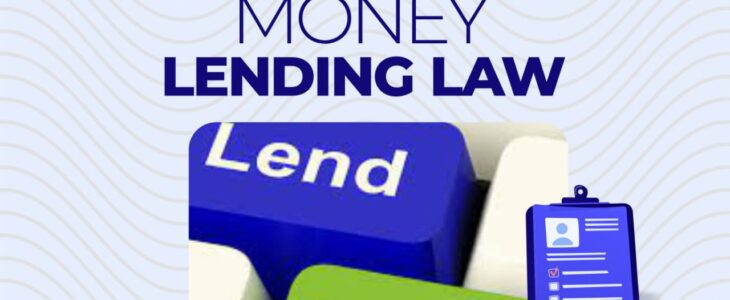
Introduction
Nigeria has about 220 Million population with about 210 Million active mobile phone users, according to the Nigerian Communications Commission, and by 2050, the nation’s population is estimated to rise to 400 Million. As of June 2022, Nigeria hit 44.30% of broadband penetration with over 84 Million Internet Users which is projected to experience 60% growth by 2027. According to Mastercard, 91% of Nigerians use digital channels for financial transactions including lending, payment, investment and related services.
The above, when juxtaposed with the recent Google’s investment in subsea cables in Nigeria, is a boost for building a digital lending business and any other product or service in the Nigerian digital economy. Of course, Lagos, as the commercial centre and most populated city in Africa, is naturally the most attractive destination for setting up a fintech company.
Doing business in Lagos is easy for both locals and foreigners –and the most interesting part is that a foreigner can solely own a business without having to come over to Nigeria! Even the process of opening a bank account for a Nigeria business owned by a foreigner can be completed by the owner living overseas.
In this article, we have, in a question and answer format, highlighted the requirements and procedure for registration of a money lender company at the Corporate Affairs Commission (“CAC”) and obtaining the operational certificate and license in Lagos State as well as the costs and timeline for completing the process. The requirements and procedure are the same for both Nigerians and foreign nationals seeking to set up a digital lending business in Nigeria.
SEE ALSO:
How is a Digital Lender regulated in Nigeria?
A digital lender is regarded as a money lender under a State’s Money Lenders Law which is providing micro or consumer credit to individual or small businesses. This category of digital lender is regulated by either the Magistrate’s Court or the Ministry of each State i.e. a sub-national government (Nigeria has 36 States and a Federal Capital Territory in Abuja).
A digital lender may also be a Commercial Bank or Finance Company or Microfinance Bank whose loan apps are available online, offering consumer credit with or without collateral. This category of digital lenders is regulated by the Central Bank of Nigeria (“CBN”) under federal laws. These financial institutions do not require additional licence from any State where they operate in order to provide digital lending services to their customers.
Please note that effective from 2022, all digital lenders are now required to register their loan Apps with the Federal Competition and Consumer Protection Commission (“FCCPC”). The FCCPC now charges the sum of N500,000 (Five Hundred Thousand Naira) for each loan App subject to a maximum of three (3) loan Apps for a company. YOU CAN READ MORE IN THE LINK BELOW
The focus of this article is on the first category, State regulated digital lender, as opposed to the second category, which is the federal regulated digital lenders.
Is a licence required to provide digital lending services in Lagos?
Yes. Every money lender within Lagos State must be licensed by the Lagos State Ministry of Home Affairs and Tourism (“Ministry”) unless it is lending money as a cooperative society or CBN-licensed financial institution or a statutory body or a licensed pawnbroker.
Under the Lagos State Money Lenders Law(“Lagos State Law”), it is an offence to engage in a digital lending business without the required government licence and anyone found engaging in any activity of digital lending, without with the required licence, will be presumed to be a Money Lender and held liable under the law.
It is important to mention that in Lagos State, a digital lender is granted both Money Lender Certificate (by a Chief Magistrate’s Court) and Money Lender Licence (by the Ministry). Both money lender certificate and licence are usually granted to a corporate applicant who meets the requirements.
What is the scope of the Digital Lending Operations?
The Lagos State Law is silent on the scope of the services that a digital lender can provide with the money lender certificate and licence.
In our view, however, a digital lender can loan any amount of money not exceeding the value of its share capital, provided there is nothing in the nature of the transaction that violates any laws and guidelines of the financial institutions regulated by the CBN or the Securities and Exchange Commission (“SEC”).
Can a digital lending company obtain a money lender licence in one State and use same to operate digitally in other States?
With the advent of technology, it is possible for the registered address of a money lender to be in one State whilst the business is potentially servicing customers from or residents in different other States of the country through its digital lending applications.
Please note, however, that a digital lending company requires the money lender certificate and licence of every State in which it seeks to operate either physically or digitally. Failure to obtain the money lender certificate and licence from a particular State where loans are given to customers may create enforcement issues and deprive the company the right to seek recovery or enforce a loan agreement in the State.
Also, the promoters of such lending business may be exposed to criminal liability for doing such business without the required licence. It is an offence to engage in money lending business in a State without the certificate and licence issued by the Government of that State.
What are the requirements for registering a Digital Lending company in Lagos?
In Lagos State, an applicant for money lender’s licence must be incorporated by the CAC as a private limited liability company with a share capital of not less than N20 Million and at least two (2) adult directors who must each have three (3) years’ tax clearance certificate.
The general requirements for setting up a digital lending business as a private limited liability company in Lagos State are as follows:
i. Two (2) proposed names for the company for CAC’s name screening and approval;
ii. A proposed registered address, email and phone number of the company in Nigeria;
iii. Names, resident address, email address, phone number, electronic signature(s) and means of identification (preferably data page of international passport) of the shareholder(s), at least two directors and the company secretary;
iv. The amount of share capital (please note that the minimum share capital of a money lender company must not be less than N20 million share capital);
v. The division of the company’s shares amongst the shareholders (if the company has more than one shareholder) and the names of person with significant control over the company;
vi. The description of business which must be solely for money lending services. However, we have successfully registered and obtained money lender licence for tech companies as a digital lending business with additional business objects relating to development of mobile applications, technology services and use of lending technologies and other software or digital solutions;
vii. A copy of the company’s Memorandum and Articles of Association (“MEMART”). The CAC has a generic MEMART for applicants to adopt when incorporating a new company but we can insert relevant clauses to make it suitable for the money lending businesses.
ix. Any other document(s) (such as work permit or business permit, etc. for foreigners who are already in Nigeria) as may be required by the CAC;
What are the requirements for obtaining money lenders’ license (for a company) in Lagos State?
1 Two Application Letters in the prescribed form on the letter head paper of the company: one to the Magistrate’ Court and the other subsequently to the Permanent Secretary of the Ministry of Home Affairs;
2 Certified True Copies of the Certificate of Incorporation, the Memorandum and Articles of Association (“MEMART”) of the Company and other CAC Forms showing the share capital of the company, the shareholder(s), the director(s), company secretary and other particulars. Please note that the MEMART must contain an object to the effect that the Company engages in the business of providing lending services to companies, individuals, etc.;
3 Three (3) years Tax Clearance Certificate (Lagos requirement only) of at least 2 Individual directors of the Company (if they are more than two directors). Please note that Lagos requires that the company must have at least two (2) adult directors.
4 Evidence of maintenance of a current account with a licensed bank in Nigeria;
5 Evidence of payment of Company Income taxes for 3 years (for old company);
6 Passport Photographs of the individual applicant (or of director of a corporate applicant) and means of identity;
7 Evidence of application for TIN (this is applicable only when it is a newly incorporated company).
8 Reference letter from the applicant’s bank.
9 Forms B and C from the Magistrate’s Court.
10 Police Clearance Report.
What are the Applicable Costs for Incorporating and obtaining a Money Lender Certificate and Licence?
| S/N | Particulars | Amount (N) |
| 1. | Company registration costs |
|
| 2. | Costs associated with police report for two directors (@ N50,000 per director) |
|
| 3. | Company seal, tax registration etc. |
|
| 4. | Costs for processing Money Lender Certificate at the Magistrate’s Court and Money Lender Licence at the Ministry | |
| 5. | Miscellaneous expenses (taxi, telephone calls, printing, data, courier, etc.) |
|
| 6. | Post licensing registrations with Federal Competition and Consumer Protection Commission (“FCCPC”), the Nigerian Data Protection Bureau (“NDPB”) and thee Moneylenders Association of Nigeria (“MAN”) | Available on request |
Please note that where the two directors do not have three years’ tax clearance certificates (“TCC”), there may be additional costs to process their TCCs.
How long does it take to complete the incorporation and licensing of a Money Lending company?
| S/N | Particulars | Estimated Timelines |
| 1. | Company registration | 2 days |
| 2. | Police report for two directors | 5 days |
| 3. | Company seal, bank account opening, tax registration etc. | 10 days |
| 4. | Processing Money Lender Certificate at the Magistrate’s Court | 7 days |
| 5. | Processing Money Lender Licence at the Ministry is subject to satisfactory inspection by the Ministry | 4 to 6 weeks |
| 6. | Other post licensing registrations with Federal Competition and Consumer Protection Commission (“FCCPC”) and Moneylenders Association of Nigeria | 2 weeks |
The estimated timeline for completing the process of incorporation and licensing is 6 to 8 weeks. Please note that the timeline for the grant of money lender’s licence by the Ministry may be longer because of the scheduling of its inspection of the applicant’s physical office before licensing.
What are the benefits of obtaining Money lending Certificate and License
1. Right to institute an action in court to recover the principal loan and accrued interest from a defaulting borrower. It is an offence to lend money for purpose of attracting interests unless the lender has obtained a money lender’s certificate and licence.
2. Right to own moveable and immovable property in the company’s name.
3. Certificate and licence serve a huge added advantage and brand visibility.
4. It can attract serious investors and create an opportunity for business expansion if a money lending business is registered and licensed.
5. Protects the business and promoters from criminal liability for doing money lending business without regulatory licence.
What are the procedures for obtaining a Money Lender’s License in Lagos State?
1. The first step is to make a formal application on the Company’s Letter Head to the Commissioner of Police, Police Command, attaching the applicant company’s Certificate of Incorporation, MEMART and other CAC Forms showing the particulars of shareholders and directors of the company.
2. Upon the above application, the Police will obtain the Applicant’s (or director’s) thumbprints for the purpose of issuing a Clearance Report to the Applicant.
3. Thereafter, the applicant is required to make an application in a prescribed form to the Chief Magistrate located within the Magisterial District where the business is situated.
4. If the application is successful, a Money Lender Certificate (Form B) from the Chief Magistrate along with a Letter which would be addressed to the Permanent Secretary of the Ministry, confirming due compliance, and recommending the issuance of the Money Lender Licence.
5. Thereafter, a further application for a Money Lender Licence shall be made to the Ministry attaching all the relevant documents.
6. The next stage is physical inspection of the money lender’s place of business by the officials from the Ministry of Home Affairs who, on an agreed date, will physically visit and inspect the premises and the officers of the Applicant company (including books and records where the applicant has already commenced operations).
7. Upon satisfaction by the official of the Ministry that the applicant has complied with the statutory requirements, the applicant will be issued with a Money Lender License for a period of one (1) year and shall be renewable every year.
Is there any other mandatory post-licensing registration for digital lenders in Lagos State?
Yes. The Federal Competition and Consumer Protection Commission (“FCCPC”) has in the exercise of its powers under its enabling law, ventured into the regulation of digital lending business in Nigeria. Recently, in exercise of the powers conferred upon it by sections 17, 18 and 163 of the Federal Competition and Consumer Protection Act, 2018 (“the FCCP Act”), and all other powers enabling it in that behalf, the FCCPC issued the Limited Interim Regulatory/Registration Framework and Guidelines for Digital Lending, 2022 (“Guidelines for Digital Lending 2022”).
According to FCCPC, the Guidelines for Digital Lending 2022 was developed and adopted by the Joint Regulatory and Enforcement Task Force as a temporary step to establishing a clear regulatory framework for the lending space. The Guidelines for Digital Lending 2022 provides for a mandatory registration of digital lenders with the FCCPC and sets out the registration requirements and additional regulatory approval of the FCCPC to carry out the business of digital lending in Nigeria.
Also, the Guidelines for Digital Lending 2022 provides that every applicant seeking to register with the FCCPC must present an evidence of membership of a trade or professional association. This presupposes that a digital lender must register with the Money Lenders Association the same way Finance Companies register with Finance Houses Association of Nigeria or Microfinance Banks with the National Association of Microfinance Banks.
READ MORE BELOW:
What are the requirements and procedure for registration of a digital lender with the FCCPC?
The procedure for registration with the FCCPC is by filling and submitting two Registration Forms with some documentary requirements. The Registration Forms are:
i. Form DLG 001 (Explanatory Notes & Provisional Guidance to Interim Digital Lending Guidelines Form 001) which is required to be completed and submitted to the FCCPC by the applicant company. The Form DLG 001 requires the applicant company to disclose to FCCPC some key information which includes the registered name of the digital money lender as well as other brand names for its digital presence; physical address; contact details; identity of promoters, directors and initial key role players; affiliated companies; source(s) of funding; proposed interest rate regime; service providers and service level agreements; list of all Apps in the business operations or intended for operation; etc.
ii. Form DLG 002 (Declaration for Digital Lending Business in Nigeria Form 002) which contains a declaration by the company to the effect that its business is legitimate, lawful and will operate in continuing compliance with any prevailing and applicable laws; that the company has complied with all applicable regulatory requirements and or approvals for any technology to be deployed; that the capital of the business is not of any illegal source; and have complied with all provisions of laws on non-involvement in illegal activity, privacy rights and data protection, and anti-money laundering regulations.
The list of documents that are required to accompany a digital lender’s application to the FCCPC are as follows:
i. Certified copy of the certificate of incorporation of the applicant company;
ii. A brief description of the business of the applicant company and where relevant, their groups;
iii. Organogram showing role players and location of key role players and any operational approving authorities/person;
iv. Name and address of a person within the business who is authorized to accept all correspondence and accept service on behalf of the business (e.g. Compliance Officer or Data Protection Officer or Managing Director of the company);
v. Evidence of membership in any trade or professional associations (e.g. the Money Lenders Association);
vi. Any service level agreements with any service providers with respect to operations but excluding administration (e.g. agreement with a credit bureau or agreement with debt recovery company, etc.);
vii. Evidence of feedback and complaint resolution mechanism;
viii. Evidence of tax payments or tax waivers where applicable;
ix. All applicable fees and charges associated with service;
x. Terms of Use or Loan Contract;
xi. Privacy Policy;
xii. Code of Conduct;
xiii. Evidence of compliance with FCCPC Interim Digital Lending Guidelines Form 001; and
xiv. FCCPC Interim Digital Lending Guidelines Form 002 (Declaration for Digital Lending Businesses in Nigeria)
Please note that upon submission of the above requirements to the FCCPC, the FCCPC will reply with a letter of additional requirement. The FCCPC will direct the company to obtain and submit a data privacy audit report from the Nigerian Data Protection Bureau (NDPB) on the company’s privacy policy. The FCCPC will give an approval after a successful review of the application.
What are the likely factors that delay or frustrate the success of application for money lender company’s incorporation and licensing process?
From our experience, there is a 100% chance of grant of licence if all the requirements are complete and in order. However, the following factors have been noted amongst other reasons for the delay or frustration of the incorporation and licensing of a money lender company in Lagos State:
Factors associated with Delay in the Incorporation Process
1. Choosing a prohibited name for the proposed company delay or stall the incorporation by the CAC.
2. Inclusion of vague and wide object clause. For smooth incorporation process, it is advisable that the object clause should be limited to money lending services and not too wide to suggest inclusion of businesses under the supervision and regulation (and therefore requiring the approval in principle) of the Central Bank of Nigeria (“CBN”) or the Securities and Exchange Commission (“SEC”).
3. Technical glitch with the CAC Pre-Incorporation Portal may also slow down the process of registering a company.
4. Insufficiency of documentation. Foreign directors may require immigration documents if they use Nigerian address. Also, foreign or local corporate shareholder(s) may require certificate of incorporation and necessary resolutions for the consideration of the approving department of CAC. Failure to supply the required documents may lead to the incorporation application being queried and delayed.
5. Failure to supply mandatory information and other necessary details. For example, the details of Persons with Significant Control (PSC) of the company, the correct details of the shareholders, directors and company secretary as well as their respective means of identity and electronic signatures must be supplied to the CAC Pre-Incorporation Portal to avoid query of the registration application.
SEE ALSO:
Factors Associated with Delay in the Licensing Process
1. Failure to provide the required supporting documents;
2. Failure to meet the share capital and directorship requirements;
3. Delay associated with opening bank accounts especially due to failure to provide necessary requirements including two (2) corporate bank references; or delay or inability of bank account officer to verify the money lender’s business address in order to activate the money lender company’s bank account;
4. Delay associated with processing biometric information of and Police Reports on directors especially where the biometric forms are not filled appropriately or where one director or a non-director attempts to fill the biometric data form on behalf of the (other) director(s).
5. Delay associated with scheduling office inspection by the Ministry of Home Affairs (for Lagos State) before granting a money lender licence. Please note that in Abuja, office inspection is not a requirement.
READ ALSO:
KORIAT’S UPDATE ON FINTECH LENDING LAW IN NIGERIA (AUGUST 2022)
********************************************************
About KORIAT & CO.
We are a commercial law firm in Nigeria with network of lawyers and consultants in Ghana, Kenya and Rwanda. The above article is not legal advice and does not automatically make our readers our clients unless they specifically instruct us to act or represent them in any way.
We assist local and foreign clients to process company registration and business licences in Nigeria, Ghana, Kenya and Rwanda.
Please contact Koriat & Co. through admin@koriatlaw.com or 09067842241 if you require additional information about or assistance in making the application for a money lender’s licence.




